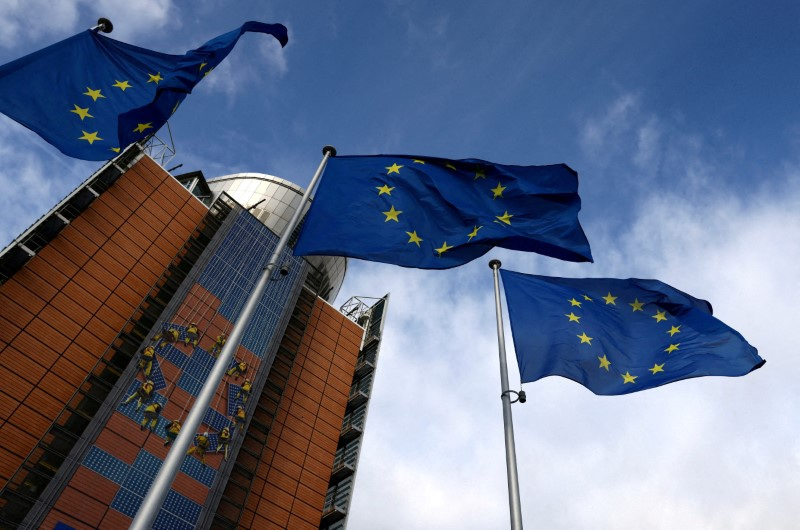BERLIN (Reuters) - Growth in lending to euro zone companies slowed again in July, adding to already mounting evidence that sharply higher interest rates are putting a brake on credit creation and economic growth.
Lending to firms in the 20-nation currency bloc expanded by 2.2% year-on-year after a 3.0% reading a month earlier, while household credit growth slowed to 1.3% from 1.7% in June, according to an ECB report.
The European Central Bank raised interest rates for the ninth time in a row in July, increasing the rate that the ECB pays on banks' deposits from 3.50% to 3.75%, its highest level since 2000, before euro banknotes and coins had been put into circulation.
At 5.3% in July, inflation remains far above the bank's target and could take until 2025 to fall back to the 2% target. Preliminary inflation data for August will be published on Thursday, with analysts polled by Reuters forecasting a decline in inflation to 5.1%.
Economic data from PMI surveys in August showed the downturn in euro zone business activity deepened far more than thought this month in a broad-based fall across the region.

Economic growth indicators are now pointing to a contraction in the third quarter, despite what could be a record-breaking tourism season. The weak data is intensifying debate over just how much more the ECB needs to do.
The M3 measure of money supply, seen in the past as a good indicator of future economic expansion, shrank 0.4% in July in a turnaround from growth of 0.6% in June, below expectations for a reading of 0.0%.